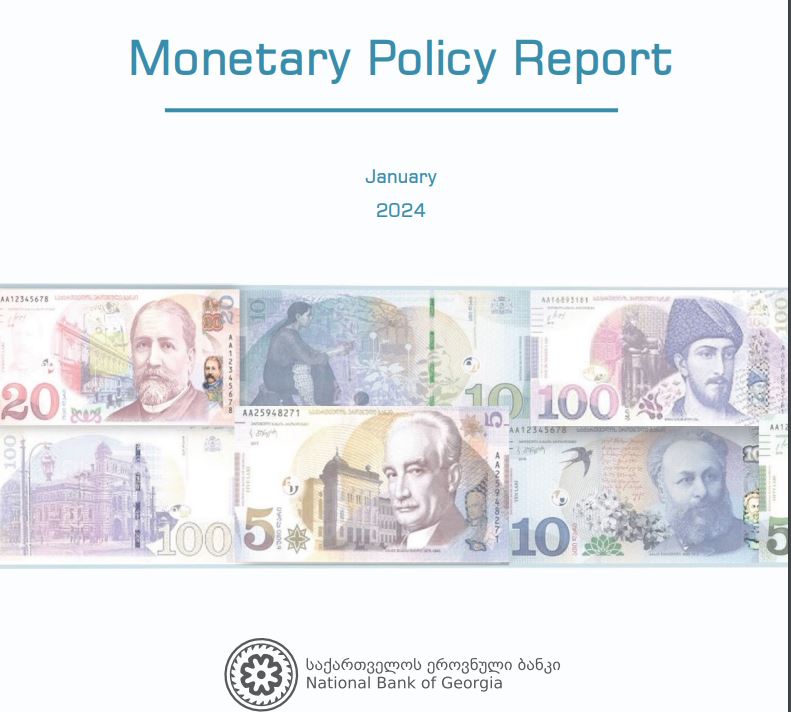The role of the National Bank of Georgia (NBG) is to influence aggregate demand and inflation expectations by adjusting the interest rate, thereby keeping inflation near to its target level in the medium term. Given the current uncertain circumstances, low and stable inflation has gained heightened importance and is crucial for supporting employment and sustainable economic growth.
In 2023, inflation in Georgia saw a significant decrease, reaching 0.4% by the year’s end. This decline was primarily attributed to the import component of inflation, while robust aggregate demand, despite the tight monetary policy, exerted an opposing influence on domestic prices. Furthermore, throughout 2023, real GDP experienced substantial growth, averaging 7% according to preliminary estimates. This elevated the risk of economic activity surpassing its potential level for a prolonged period. However, the concurrent accelerated growth in investments contributed to an increase in potential output. According to the baseline scenario, excess demand is expected to fully normalize throughout 2024, which will be accompanied by only a gradual reduction in the monetary policy rate. This, in turn, is anticipated to contribute to the stabilization of inflation around its target rate in the medium term. In the alternative scenario, which is equally relevant given the recent robust growth in lending, strong demand may elevate the pressure on consumer prices to some extent. In response to this, the National Bank of Georgia will pause the monetary policy rate reduction process and, depending on credit activity, may even resume a tightening cycle
Monetary Policy Report, 2024 (January) is available here

